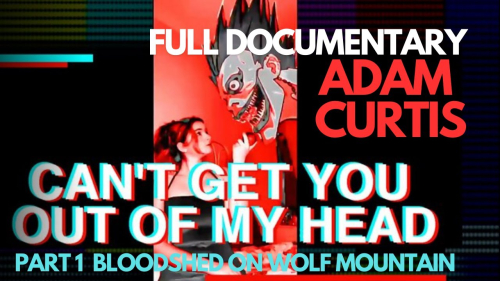Can’t Get You Out of My Head: An elite gaze on populism and revolution

There are always calls from the right to defund the British Broadcasting Company but they are now being joined by calls from the left as well, as one of the casualties of the genocide in Gaza is the BBC’s own vaunted “objectivity.”
That questioning was on display when BBC staff members wrote a letter published in Al Jazeera stating that the BBC coverage of this current eruption of the Israeli/Palestinian conflict was biased. The network spent a good deal of time humanizing Israeli victims while failing to provide any context and information on the 75 years of occupation before the October 7 attack, thus rationalizing the Israeli response as “self-defense.”
These cracks in the armour are also apparent in the BBC’s Can’t Get You Out of My Head, a 2021 six-part documentary television series (now available on YouTube) by the prodigious filmmaker Adam Curtis. Curtis, in what he calls an “emotional history of the modern world”, attempts to trace the roots of the populism which is so much with us today. His reach is wide, encompassing the Mau-Mau in Kenya, Black revolutionary heroes and gangsters, the transformation and gentrification of London’s Notting Hill, Madame Mao and the Cultural Revolution, and the technological revolution which the documentary sees as resulting in mind control.
The reach is wide, but unfortunately the grasp is narrow. This is the Christopher Nolan school of filmmaking – that is, Nolan’s rapid-fire cutting and shooting through history at a pace that makes serious grappling with any moment of that history difficult. It’s Nolan’s scattergun fictional style, applied to documentary.

Curtis finds all forms of revolutionary activity in the 1950s through the 1970s lacking, but his focus on the singular and the bizarre without much context. and almost devoid of an economic analysis which might underpin and ground his “emotional history”, ends up promoting the “chaos” which his elite gaze on the material seems to be so adamantly fearful of.
The montage, the clashing of various aspects of the counterculture as well as his tracking of the growth of digital surveillance and the various musics – reggae, rap, punk – which he uses as a backbeat to his story, suggest a new approach to documentary. However, there is one element that remains of an old and conservative style, and that is Curtis’ own all-knowing narration in a voice that in its supposed ability to grasp this totality remains the stentorian “voice of God.”
He treats populism as an end in itself, not as a symptom and coping mechanism of a wider breakdown of western capitalism. Under neoliberal capitalism, more and more wealth is being redistributed upwards over the time he is discussing, leaving people more and more desperate and searching for solutions that often include demagogic leaders – the best the system allows to be thrown at them.
When he does glimpse of the thought behind the detached veneer of his narration, the results are frequently disappointing. Thus, the Black Panthers were incendiary violent revolutionaries gullibly deceived by police informants, when in fact the Panthers’ greatest and most lasting contribution was the institutionalizing of their program of school lunches for poor children. The Cultural Revolution is seen as mass deception organized by Madame Mao, a disgruntled actor seeking revenge on the Shanghai film artists who had slighted her in the 1930s. In Curtis’ view the Revolution, which brought education to many poor rural Chinese in a country that was vastly illiterate, was only an unleashing of one-woman’s “resentment” that linked to a whole society’s anger at the past. The imperialist West is not blamed or even mentioned as a primary factor in generating this anger. (By the way, the footage of Peoples’ Revolutionary Operas is thrilling.)

Jim Garrison, who attempted to bring to trial those who he claimed had participated in the assassination of a president, and whose efforts Oliver Stone and the myriad researchers working in the shadows to bring this hidden history to light, is labelled as delusional. Curtis dismisses the possibility that elites participated in a violent coup at the heart of Western democracy as “complete fantasy.”
Behind the imperial voice, the objective and all-knowing veneer, Curtis’ documentary is not a history of populism but instead a history of elite fears of both revolution and populism. Can’t Get You Out of My Head in its frantic pace generates a whole lot of heat, but in the end, not much light. As such, it strikes another blow against the BBC’s false “objectivity.”

Dennis Broe
Dennis Broe is the author of The House That Buff Built, the upcoming fourth volume in the Harry Palmer mystery trilogy whose subject is homelessness and the real estate industry, racial prejudice against the Chinese in Los Angeles, and the power of major media to set the development agenda.
Latest from Dennis Broe
- Reactionary reflexivity Part 2: How Police Beatings are Described as 'Heightened Chaos'
- Reactionary Reflexivity: Sealing the Iron Dome on Media Coverage of Gaza, Part One
- 'The Sympathizer': Not Sympathetic Enough
- The Good, the Bad and the (possibly) Interesting: Previews of some Spring global TV series
- The Decline of Streaming Services and the Exploitation of AI for Profit
